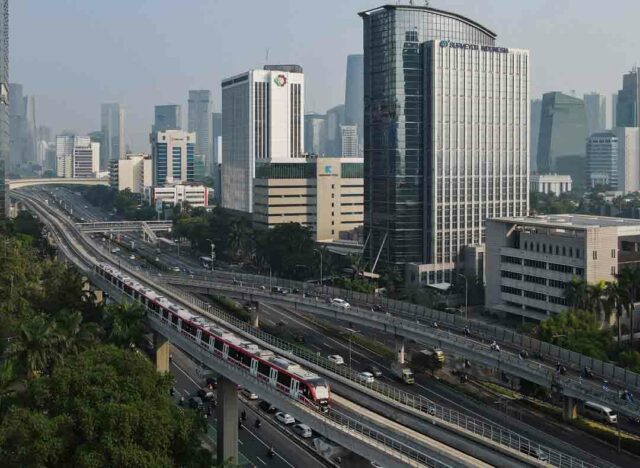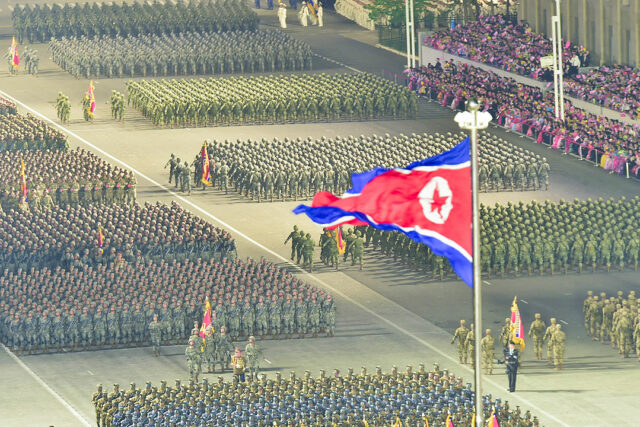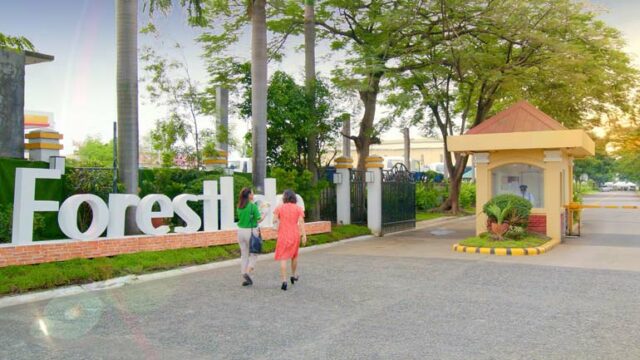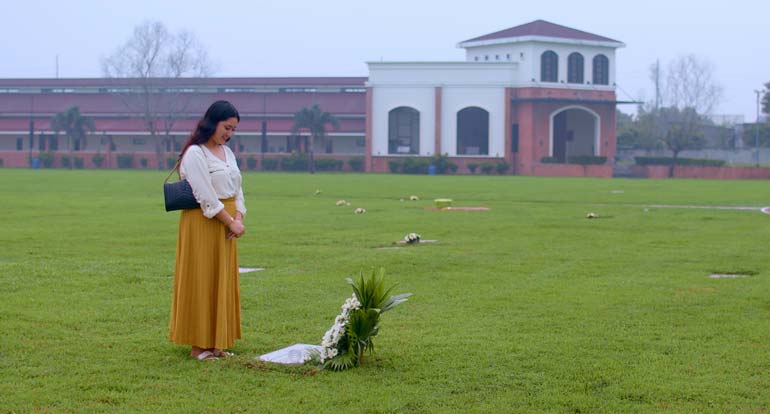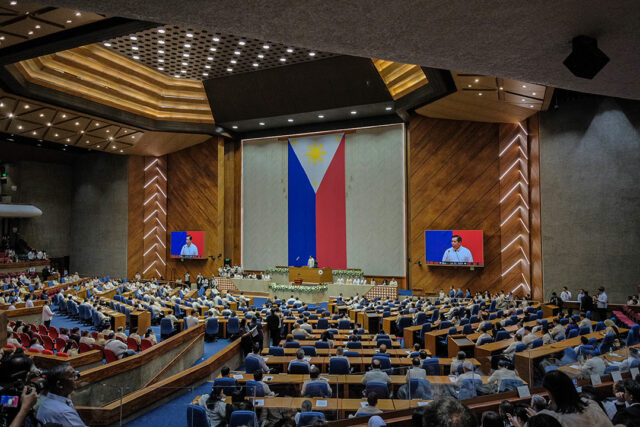By Chloe Mari A. Hufana, Reporter
A SMALL COMMITTEE tasked by the House of Representatives to propose changes to the 2025 General Appropriations bill has increased funding for social services, food security and social safety nets by P292.23 billion, in the face of weak economic growth that could go below the government’s target through next year.
In a statement on Tuesday, House Appropriations Committee Chairman and Ako Bicol Party-list Rep. Elizaldy S. Co said the additional allocation is on top of the P591.8 billion already set aside for cash assistance to poor families.
“The additional funding is crucial for supporting those in need,” he said.
The House last month approved the P6.352-trillion national budget for 2025. The Senate is conducting hearings on the proposed budget.
Mr. Co said the small committee had approved an additional P39.8 billion for Assistance to Individuals in Crisis Situations (AICS), and another P39.8 billion for the Ayuda sa Kapos ang Kita Program (AKAP). Next year’s budget for AKAP, which provides cash assistance to people earning P21,000 or less monthly, has surged 206% from the P13 billion allocated for 2024.
The committee also set aside P3.4 billion for the state’s sustainable livelihood program for low-income families.
Appropriations Committee Senior Vice-Chairman and Marikina Rep. Stella Luz A. Quimbo said the Labor department would receive an extra P20.28-billion funding for the Tulong Panghanapbuhay sa Ating Disadvantaged/Displaced Workers and the Government Internship Program.
The committee also allocated an additional P30.01 billion to provide scholarships for underprivileged students pursuing higher education. The funds will be evenly distributed between the Commission on Higher Education’s Tertiary Education Subsidy and Tulong Dunong programs.
The House panel approved an additional P7 billion for the Department of Education to build new school facilities and repair existing ones.
Meanwhile, the Armed Forces of the Philippines (AFP) will get an additional P8.44 billion to boost the subsistence allowances of military personnel. Upon approval, the daily subsistence for soldiers will rise by 67% to P250.
Amid increasing tensions in the South China Sea, the panel allotted P3.2 billion for the AFP to finalize the airport expansion on Pag-asa Island and to develop a shelter port in Lawak, Palawan.
To bolster food security, the committee has realigned P30 billion for the Department of Agriculture’s initiatives, including the Philippine Irrigation Network Piping System, solar-powered irrigation systems and cold storage projects.
The National Irrigation Administration will also receive an extra P44 billion to establish pump irrigation and solar-driven pump irrigation projects.
The House committee also allotted an additional P56.87 billion for the Department of Health’s programs such as health facility enhancement, medical assistance for indigent patients and improvement of specialty and legacy hospitals.
An additional P1 billion has been allocated for the upgrade of the University of the Philippines-Philippine General Hospital.
The remaining P8.43 billion, according to Mr. Co’s office, will be distributed across several sectors, such as to university service centers, vehicle acquisition for local governments, skill development programs and for tourism market development.
Additional funds will also support intelligence, marine research and security programs of the Department of Transportation, and the rehabilitation of the Cultural Center of the Philippines main building.
IMPLEMENTATION ISSUES
University of the Philippines School of Labor and Industrial Relations Assistant Professor Benjamin B. Velasco said the issue is about the implementation of social safety nets.
“It is coursed through politicians and thus becomes entangled in the patronage systems of local and dynastic politics,” he said in a Facebook Messenger chat, adding that incumbent politicians could distribute these AKAP and AICS funds to their constituents.
“We should find a way to disburse aid without the beneficiaries being identified by politicians,” he added, noting that one way to do this is through a national database of indigents, informal workers and migrant families as the pool of legitimate beneficiaries.
Mr. Velasco said increasing social programs could also boost the economy because the money will end up in the hands of consumers.
Federation of Free Workers President Jose Sonny G. Matula also called for an evaluation of those social assistance programs.
“While these programs may provide short-term relief, we need to focus on strengthening and expanding unemployment insurance under the Social Security System and Government Service Insurance System and enhancing training and reskilling programs for displaced or jobless workers to ensure long-term, sustainable support,” he said in a Viber message.
However, Leonardo A. Lanzona, Jr., an economics professor at the Ateneo de Manila University, said the move to increase the budget allocation for social services could stoke inflation.
“It can actually just increase inflation since these are not related to production. Just like in a carnival, when owners know that people have money, they will just raise prices,” he said in a Facebook Messenger chat.
“In the end, people just remain dependent on these dole-outs, thus enhancing the dynasty,” he added.
Economic managers are targeting 6-7% growth this year, and 6.5-7.5% growth in 2025.
The Philippine economy grew by 6% in the first half, as high inflation and elevated interest rates dampened consumption.
To meet the lower end of the target, GDP expansion should average 6% for the remainder of the year.
Third-quarter economic data will be released on Nov. 7.
Meanwhile, Teodoro C. Mendoza a retired agronomy professor at the University of the Philippines Los Baños, said instead of investing in production, the government should just buy the products of farmers.
“Buy the farmers’ rice at P25 per kilogram, and they will be happy. They will be motivated to produce more rice,” he said in a telephone call, noting the solar irrigation systems he saw in the past years were not entirely successful.
The House of Representatives might have violated a Philippine Constitution provision disallowing amendments on bills passed on final reading, analysts earlier told BusinessWorld. This could open the House to potential lawsuits that could derail the government’s spending plan next year.
Congressmen approved House Bill (HB) No. 10800, the General Appropriations bill, on final reading last month. The House adopted committee amendments to the spending plan during plenary deliberations while deferring proposed individual reallocations to a later date to meet its self-imposed September deadline.
“No amendment… shall be allowed” after a measure’s last reading, according to Sec. 26 of the 1987 Charter.
